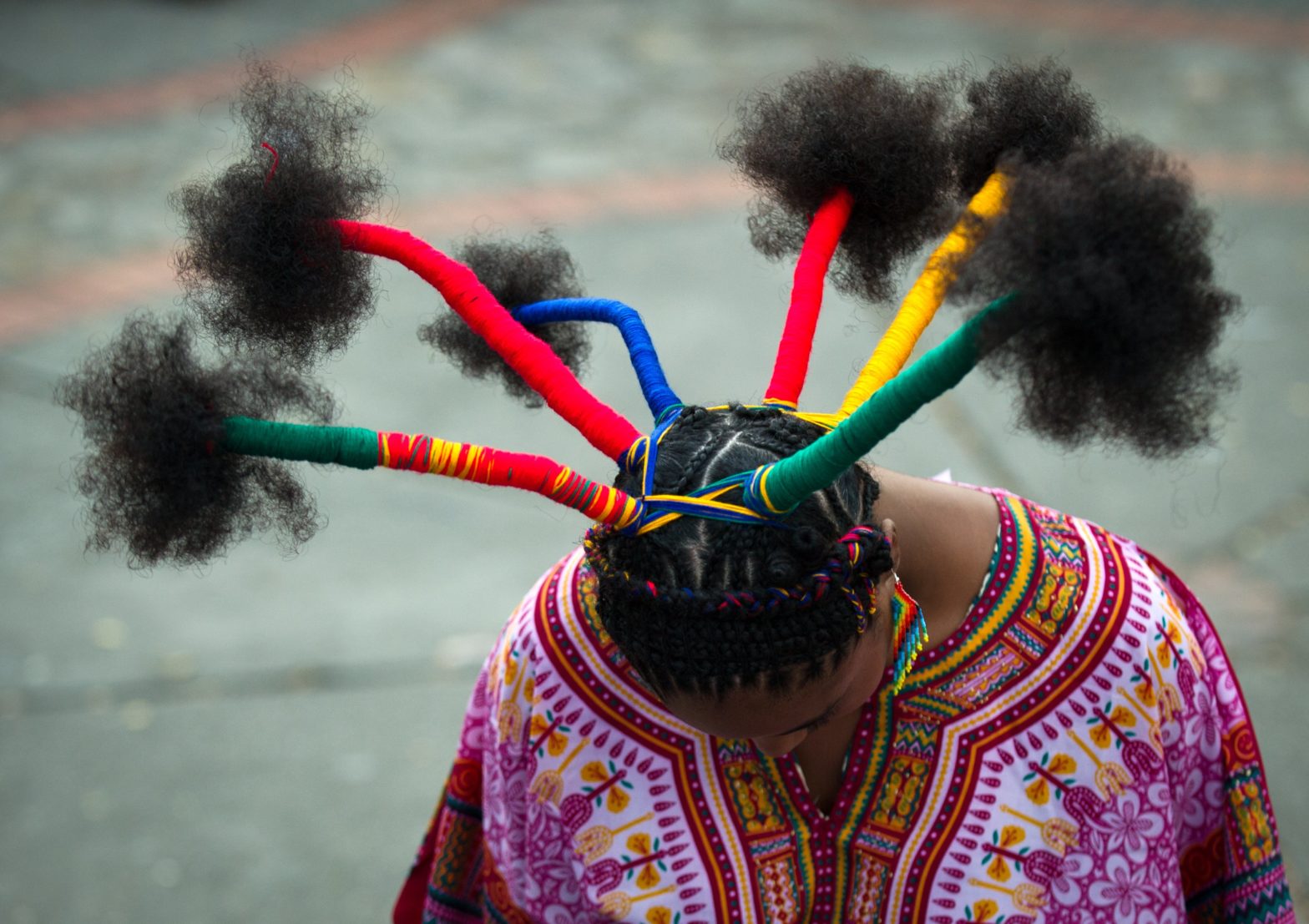For the African diaspora, there are many things to celebrate; our hairstyles serve as a crowning glory rooted in culture. Around the world, Black hair is an expression of history and art. Colombia’s annual “Tejiendo Esperanzas” (Weaving Hopes) celebration takes the reverence for this aspect of the Black experience to another level.
Braiding has origins that stem well before the creation of the contest, both in Colombia and in its ties to Africa. Prior to the abolishment of slavery, braids were often used as cultural messages signaling one’s intent to escape and were even used to keep gold and seeds to help them survive on the journey.
Weaving Hopes is an annual competition in Cali, CO commemorating the abolition of slavery in Colombia and the tradition of braiding. From colorful adornments to intricate patterns, the contest welcomes hairdressers of the region to participate in categories that celebrate natural, synthetic, men’s, and children’s braid styles. A “Hair Marathon” is another element of the festivities, where members of the public, who are not in the competition, are able to have their hair braided as well, as documented by Daily Mail.
Honoring The Rich Cultural History of Afro-Colombians
The annual event is organized by the Association of Afro-Colombian Women, Amafracol with support for this year’s event from the CaliAfro program, of the Social Welfare Secretariat. Weaving Hopes serves as a component of strengthening organizational efforts toward the communities and organizations of the Afro base of the District.
Weaving Hopes is one of many efforts to rescue the customs, identity, and African culture of the country. In its 18th year, the festival is traditionally held on May 21st, the day slavery was abolished in Colombia in 1851.
Historic hair love
“Weaving Hopes is already 18 years old, creating a space that has been a pioneer in the deconstruction of negative imaginaries about black aesthetics in Colombia; We want to continue with this tradition of hairstyles of African origin, which brings together hairdressers from all regions of the country, preserving an ancestral legacy and being part of Afro culture,” said Emilia Eneyda Valencia Murrain, a representative of the Association of Afro-Colombian Women, Amafracol, in a statement on Cali.gov.
Braid gang (and those that love us), are you adding Cali to your travel bucket list?
Related: 7 Festivals And Events Happening In Colombia In 2022 | 8 Of The Most Influential Black Women In Colombia’s History
